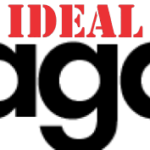[ad_1]
Monday’s NATO summit meeting of 30 leaders is short, with one 2.5-hour session after an opening ceremony, leaving just five minutes for each leader to speak.
The main issues will be topical — how to manage Afghanistan during and after the withdrawal of United States troops, Vladimir V. Putin’s Russia, Xi Jinping’s China and Aleksandr G. Lukashenko’s Belarus.
The leaders will also sign off on an important yearlong study on how to remodel NATO’s strategic concept — the group’s statement of values and objectives — to meet new challenges like cyberwarfare, artificial intelligence, antimissile defense, disinformation and “emerging disruptive technologies.”
In 2010, when the strategic concept was last revised, NATO assumed that Russia could be a partner. China was barely mentioned. The new one will begin with very different assumptions.
NATO officials and ambassadors say there is much to discuss down the road: questions like how much and where a regional trans-Atlantic alliance should try to counter China, what capabilities NATO needs and how many of them should come from common funding or remain the responsibility of member countries.
How to adapt to the European Union’s still vague desire for “strategic autonomy,” while encouraging European military spending and efficiency and avoiding duplication with NATO, are other concerns. So is the question of how to make NATO a more politically savvy institution, as President Emmanuel Macron of France has demanded, perhaps by establishing new meetings of key officials of member states, like national security advisers and political directors.
More quietly, leaders will talk about replacing the current NATO secretary general, Jens Stoltenberg, whose term was extended for two years to keep matters calm during the Trump presidency. His term ends in September 2022.
[ad_2]
Source link
